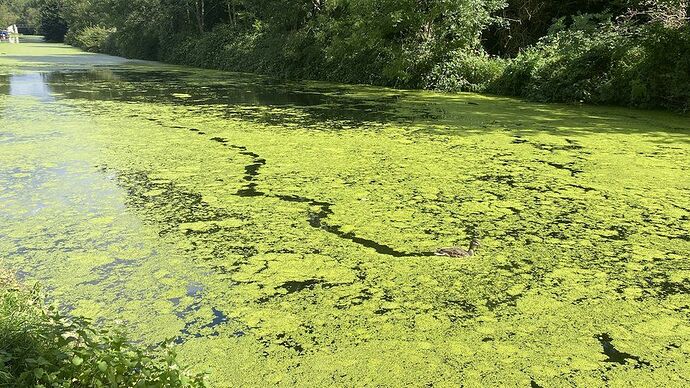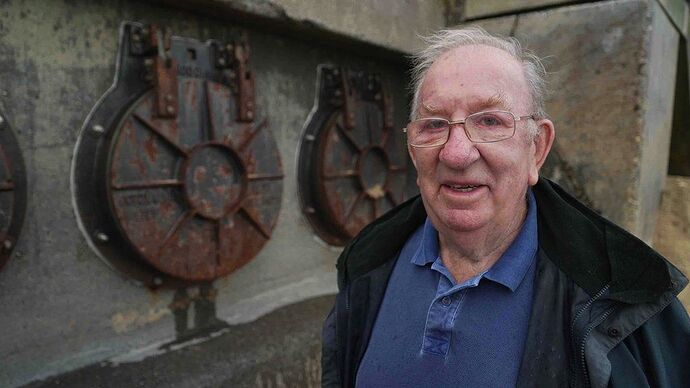"The UK’s environment watchdog suspects the government and water regulators have broken the law over how they regulate sewage releases.
It follows continued high levels of sewage releases in England which topped 825 times a day last year.
Campaigners and opposition MPs have called the regulators “complicit” in allowing the pollution.
The government said it did not agree with the Office for Environmental Protection’s “initial interpretations”.
Last week a BBC investigation found potentially hundreds of illegal dry sewage spills in England.
- BBC report suggests illegal sewage spills by water firms
- Calls for action after BBC News report on sewage
- Why is sewage pumped into rivers and the sea?
In response to the announcement the government said: “The volume of sewage discharged is completely unacceptable. That is why we are the first government in history to take such comprehensive action to tackle it.”
But campaigners hit back at the government’s record on sewage pollution.
WildFish, a environmental charity, who brought one of the original complaints to the Office for Environmental Protection (OEP) said: “Let’s be quite clear here. Those three public bodies are complicit in allowing the pollution. That must now end.”
Charles Watson, chairman of River Action, a water quality charity, said: “It’s no surprise to us that the first enforcement action the Office for Environmental Protection is pursuing against the government over sewage pollution. Our rivers are in crisis.”
In 2022, water companies in England released sewage for 1.75 million hours.
Duckweed and algae can bloom with excess nutrients from sewage
Releasing sewage into waterways can lead to a build-up of algae which starves local wildlife of oxygen and can produce toxins that are fatal to pets and dangerous to people.
Following complaints to the OEP over sewage in June 2022 it announced it was investigating whether England’s regulators, Ofwat and the Environment Agency, along with the Department for Environment, Food and Rural Affairs (Defra), were correctly enforcing the law on water companies.
One of the key elements of the OEP investigation is whether the Environment Agency (EA) has set the correct rules for allowing sewage releases.
Sewage sometimes needs to be released when it is raining to prevent a build up of wastewater in the system and sewage flowing back into people’s homes.
The EA currently allows sewage to be discharged on any day when it has rained and only investigates if there has been sewage released on a ‘dry day’.
But campaigners have long argued that the EA should be looking at any sewage discharges that happen outside of heavy rain not just rain-free days.
Bob Latimer - a long-time campaigner against sewage releases
This is because in 2012 - following a case brought by retired Sunderland engineer Robert Latimer - the EU courts ruled that sewage should only be discharged during exceptional circumstances such as unusually heavy rainfall because of the potential environmental impact - this was adopted into UK law.
The OEP announcement on Tuesday was an “information notice” - a requirement for the regulators to set out whether they agree with the OEP’s view that they have not complied with environmental law and if they agree what action they will take. They have two months to do this.
The OEP will assess this information and likely publish a final decision later this year.
It is not clear what position the government and regulators will take, but a Defra spokesperson told the BBC: “While we do not agree with the OEP’s initial interpretations, which cover points of law spanning over two decades, we will continue to work constructively with the OEP on this issue.”
If it is found the law was breached the OEP said it “would be serious” and the first time that the OEP has made such a decision.
The organisation will make recommendations to MPs to take action against the regulators or will apply to the High Court for urgent judicial review.
In practice this means that the Environment Agency or one of the regulators will have to change the way it enforces the law for sewage companies.
An Environment Agency spokesperson told the BBC: “We welcome this investigation from the Office for Environmental Protection and we share their ambition to drive improvements in water quality.”
Ofwat echoed this and told the BBC: “We welcome the OEP’s considerations, particularly on the clarity of responsibilities for the protection of the environment and we will work with them as their investigation moves forward.”
The OEP investigation was started in part due to the tireless action against sewage by Bob Latimer - a retired engineer from Sunderland who brought the 2012 case.
Mr Latimer has been campaigning to prevent regular sewage releases near his family’s fishmongers for two decades. He has long argued that the environmental law has not been properly implemented by allowing sewage to be released outside of heavy rain. Despite winning his case in 2012 he says he continues to see regular discharge when there is not heavy rain, he now hopes the OEP investigation will stop that.": https://www.bbc.co.uk/news/science-environment-66778409?at_format=link&at_link_origin=BBCBreaking&at_ptr_name=twitter&at_link_id=DE5B8678-5149-11EE-9971-9A43D99D5CC3&at_link_type=web_link&at_medium=social&at_campaign=Social_Flow&at_campaign_type=owned&at_bbc_team=editorial

